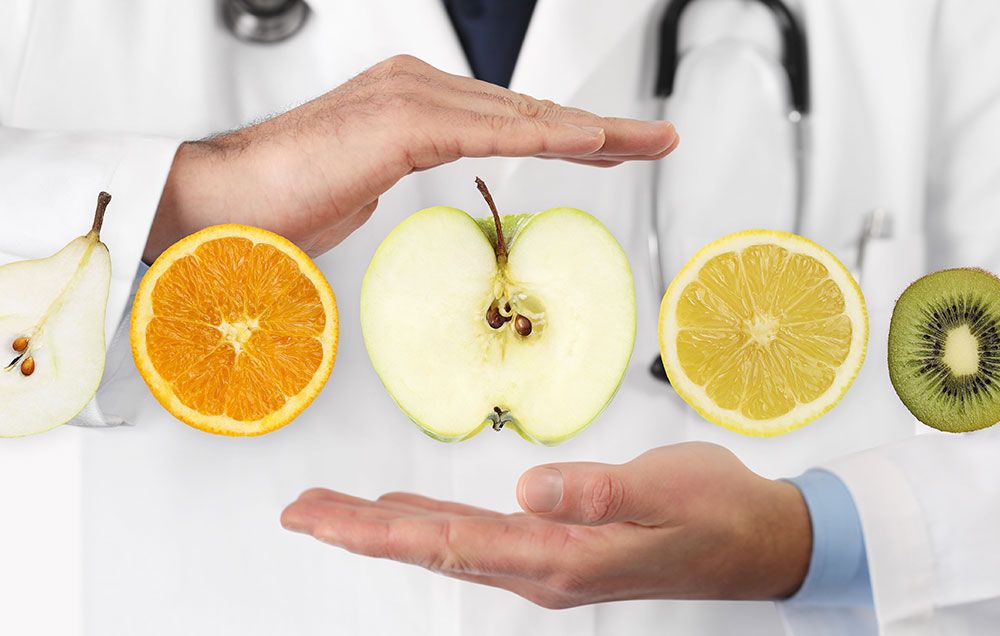All Categories
Featured
Table of Contents
-1
It's something like the distinction in between your close friend that has a set of clippers and an accredited barber."Any person can call themselves a nutritional expert.
-1"Being a dietitian implies you have actually finished the demands set by the Academy of Nourishment and Dietetics to supply nourishment therapy and clinical nutrition therapy."You'll locate dietitians in a range of job settings, consisting of: Hospitals and physicians' offices. Assisted living facility. Neighborhood wellness and wellness organizations (like gyms and entertainment centers). Foodservice companies. Food and beverage firms.

-1
In enhancement to making RD and LD credentials, some signed up dietitians may finish specialized training to be able to much better guidance people with details nutrition goals or wellness problems. Each of those qualifications may include additional letters after their name, also. Some dietitians might make certifications in specialties like: Sports dietetics (CSSD). Gerontological nutrition (CSG). Pediatric nourishment (CSP). Weight problems and weight management (CSOWM). Diabetes treatment and education and learning (CDCES). Some accreditation programs might be open to people that aren't registered dietitians.
-1"If you desire to be sure you're obtaining the best evidence-based suggestions from a professional in the field, a dietitian is always going to be your ideal bet," Sommer suggests. That's not to say some people that haven't completed the specialized training it needs to be a dietitian don't have anything to supply.
Paediatric Dietician – Cockburn 6164
-1"Your health and wellness is essential, so you do not intend to place it in the hands of just any individual.".
-1The solution is there is a distinction. As an Accredited Practising Dietitian and Accredited Nutritional expert, I believe it is incredibly important to discover a specialist best matched to your individual needs; and it is imperative to make an enlightened selection. In Australia there is no legal defense over the terms 'dietitian' and 'nutritional expert.' This means that any person (with a selection of education and learning and training) can describe themselves as a dietitian or a nutritionist.
-1In comparison, the term nutritional expert is not as managed as APD. Nutrition Society of Australia has actually developed a Register of Nutritionists yet membership is completely voluntary. This implies it is up to the specialist if they want to end up being a member or otherwise. While several nutritionists go through university training, it is not for dietitians.
-1Nutritionists are not enlightened in clinical nourishment therapy and can not prescribe diets in illness states. This consists of both in individual or group dietary treatments. Nutritional experts are only able to provide guidance for general wellness problems such as weight monitoring, nutrition throughout the life cycle, or nourishment in numerous dietary options (such as veganism and vegetarianism).
Fertility Nutritionist (Atwell 6164)
-1It is important to explain that, as a result of boosted education, all APDs are automatically Recognized Nutritional experts and have the ability to give all of the services a nutritional expert can offer. The purpose of both nutritional experts and dietitians is to assist individuals attain ideal health and health and wellbeing via improving nourishment. The main distinction between a dietitian (just those with the APD title) and a nutritional expert is that APDs have actually taken place to further research study and are qualified to give medical nourishment therapy to people and to teams.
-1APDs performance is likewise consistently checked and they are required to finish continuous education and learning. APDs are bound by a Code of Ethics, and those who do not conform (along with those that do not complete the called for consistent specialist advancement) shed their APD title. APDs are also registered with Medicare, DVA and many wellness funds; whereas, nutritionists are not.

-1
Both are health care specialists, the titles 'Dietitian' and 'Nutritionist' are commonly improperly swapped. The major difference is the training and licensing that puts on each title. The title of a Registered Dietitian (RD) is secured by legislation, and experts must be registered with the Health & Care Professions Council (HCPC). To end up being a Registered Dietitian, you need to finish an approved bachelor's level and then a Master's in Dietetics or a Doctorate.
Renal Dietitian – Atwell 6164
-1YouTube Widget Placeholder The title of Registered Nutritional expert is given to registrants with the UK Voluntary Register of Nutritionists (UKVRN). Registered Nutritionists are certified to supply nutritional info and suggestions as professionals in nutritional scientific research, to both people and neighborhoods. By completing an innovative degree such as a master's in nutrition and/or doctorate programme, Registered Nutritionists can proceed to become scientists and instructors in the area of nutrition.

-1
The primary difference in between dietitians and nutritional experts exists in the lawful limitations that each title lugs. (RD) or registered dietitian nutritionists (RDN), can deal with clinical medical concerns.
-1Because of this, dietitians have to finish advanced training and usually can just practice with a state-issued certificate. Often, insurance policy carriers will certainly cover costs related to a dietitian's solutions. On the other hand, nutritionists generally supply extra basic dietary guidance. While they commonly work in schools, fitness centers, health and wellness food stores, and other much less medically-oriented atmospheres, they can also operate in a number of the same places as their RD colleagues.
-1Some states need nutritionists to hold an occupational permit, yet others don't control the role at all. If you're checking out which course is appropriate for you, right here's what you require to understand concerning the distinctions in ending up being a nutritionist versus a dietitian.
Latest Posts
Dietwise.net.au - Children (Perth )
Privacy Policy ( Fremantle)
Nutritional Deficiencies – Guildford